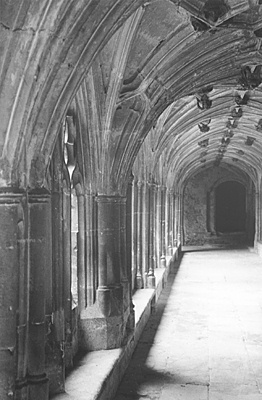All Nonfiction
- Bullying
- Books
- Academic
- Author Interviews
- Celebrity interviews
- College Articles
- College Essays
- Educator of the Year
- Heroes
- Interviews
- Memoir
- Personal Experience
- Sports
- Travel & Culture
All Opinions
- Bullying
- Current Events / Politics
- Discrimination
- Drugs / Alcohol / Smoking
- Entertainment / Celebrities
- Environment
- Love / Relationships
- Movies / Music / TV
- Pop Culture / Trends
- School / College
- Social Issues / Civics
- Spirituality / Religion
- Sports / Hobbies
All Hot Topics
- Bullying
- Community Service
- Environment
- Health
- Letters to the Editor
- Pride & Prejudice
- What Matters
- Back
Summer Guide
- Program Links
- Program Reviews
- Back
College Guide
- College Links
- College Reviews
- College Essays
- College Articles
- Back
The More Things Change
Once upon a time there was a beautiful young man by the name of Dorian Gray, whose beauty was so rich that it struck fear and intimidation into the eyes of others. He was a very charming man; however, that abruptly began to change. Once Dorian Gray realized that his youth was only temporary, he decided to live the rest of his younger days to the fullest. For Dorian, living his life to the fullest involved casting aside all morals. The saying “the more things change the more things stay the same” is contradicted by Dorian’s story. The story of The Picture of Dorian Gray, by Oscar Wilde, disagrees with this cliché because, in the novel, Dorian Gray begins to change the way he thinks, which then sparks a chain reaction of changes in his actions and a change in the things around him.
First, Dorian starts to see his charm as temporary, so he begins to change the way he acts by acting without thought because he starts to feel as though every decision must be made in the moment. At the beginning of the novel, Dorian Gray encounters a man, Lord Henry, and has an interesting conversation about youth and beauty and how both are more important than anything else. This conversation escalates quickly as the words Lord Henry is speaking begin to really absorb in Dorian’s mind. Dorian starts to realize that his youth and beauty will not last forever and becomes very upset. He claims that he would trade his soul in order to keep his youth. With this new way of thinking about his ephemeral youth, Dorian starts to live his life with a lack of morality. He does not stop to question whether he should or should not partake in an action, he just does the action. For example, Dorian, in hopes of marrying an aspiring actress by the name of Sybil Vane, goes to see one of her plays with Lord Henry. When Sybil fails to live up to Dorian’s great expectations, Dorian, without a second thought, is extremely rude and horrible to her after the show. The next day Dorian finds out that Sybil has died. It is assumed to be a suicide as stated by Lord Henry, “I have no doubt it was not an accident” (Wilde 72). Dorian is most likely the reason for her suicide because of the conversation they have before she dies. The change that Dorian Gray experiences in his soul, becomes changes in his actions as well, so this goes directly against the cliché of “the more things change, the more things stay the same”.
Next, as a result of Dorian’s changing actions, the picture of him begins to change. In the beginning of the story, Dorian Gray’s best friend, Basil, paints a portrait of Dorian. Around the time that the painting is being done, Lord Henry and Dorian are having their discussion of short-lived youth and beauty. Once Basil is finished with the painting Dorian becomes jealous of it, “I am jealous of the portrait you have painted of me. Why should it keep what I must lose? Every moment that passes takes something from me, and gives something to it. If only the picture could change, and I could be always what I am now” (Wilde 20). Dorian’s wish seems to come true as the more he acts immorally, the more the picture changes. The picture changes according to Dorian’s change in his soul and actions, so one can see that this chain reaction of changes in Dorian’s personality would contradict the cliché.
The cliché that states the more things change, the more things stay the same is contradicted by the story of The Picture of Dorian Gray, by Oscar Wilde, because a chain reaction begins as Dorian Gray experiences a change the way he thinks, thus changing the way he acts. First, Dorian realizes that his youth and beauty will not last forever, so he begins to think he must simply do rather than think before he acts. Dorian then begins to act immorally due to this change of thought. Next, the portrait of Dorian Gray changes as he does. The picture shows how Dorian is gradually losing his morals. In conclusion, the more things change, the more they change.

Similar Articles
JOIN THE DISCUSSION
This article has 0 comments.
